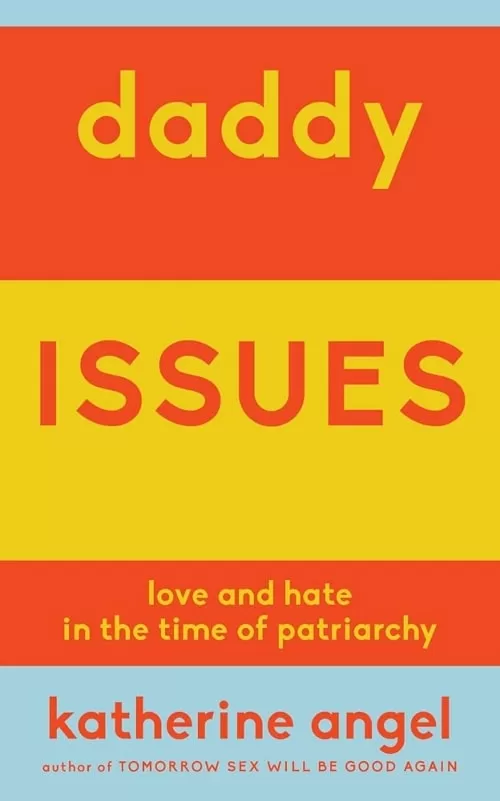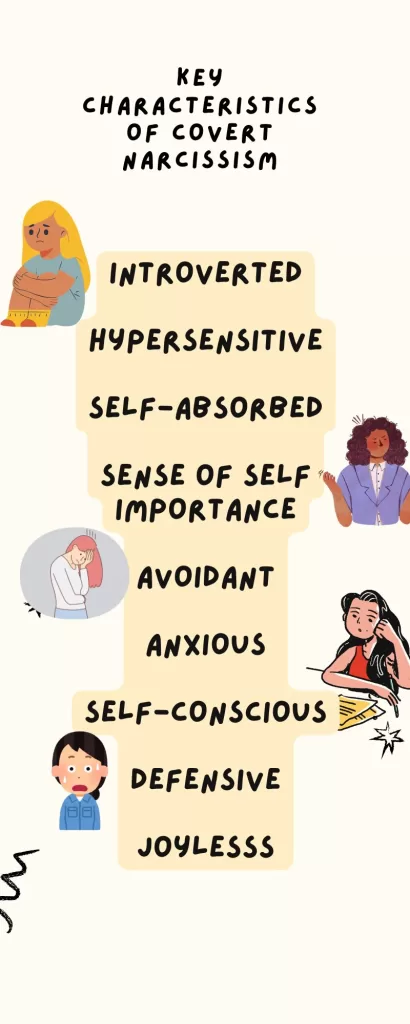Have you ever noticed something a little off about your father? You can’t quite put your finger on what it is, but deep down, you know something just isn’t right.
Maybe you first realized it when you noticed how different your friends’ fathers were compared to yours.
When it comes to narcissistic fathers and their daughters, it’s way more complex than just a typical narcissistic relationship. There are cultural, emotional, and even political layers to this dynamic that make it really tricky to unravel.
Daddy Issues
The father-daughter relationship problems are always a hot topic in pop culture, though we usually hear them referred to by another name—”daddy issues.” And let’s be real: you don’t need a narcissistic father to have them!
Even if your dad doesn’t fit the textbook definition of a narcissist, the way he views women can still impact you—and this is something beautifully captured in a couple of recent movies.
It’s one of those phrases men love to throw around when they’re dating women, even though they probably have their own unresolved “daddy issues.” They use it as a way to shame women who’ve had abusive or absent fathers, basically blaming them for their trauma.
“Daddy issues” typically refers to emotional and psychological challenges that come from a complicated relationship with your father, and these challenges often show up in adult relationships.
This concept pops up all over—from literature and psychology to movies and social media.
Let’s take a quick dive into the book Daddy Issues: Love and Hate in the Time of Patriarchy by Katherine Angel. It really helps break down this topic.

The book looks at how father-daughter relationships are shaped by patriarchy and brings out some interesting points:
- Patriarchal Dynamics: Angel talks about how fathers, even when they mean well, end up holding a lot of power within patriarchal systems. The whole “daddy issues” trope is really a way to critique the idea that women’s romantic or personal struggles are tied directly to their relationships with their dads. Angel argues that this actually reinforces misogyny and oversimplifies what’s going on.
- Cultural Critique of Fatherhood: The book also dives into public figures like Donald Trump and Ivanka Trump, showing how patriarchal values shape both private and public life. Ivanka’s defense of her dad’s misogyny and the Brett Kavanaugh hearings are used as examples of how hard it is to fight toxic patriarchy just by “telling the truth”.
Angel’s book really opens up the conversation about the struggles that come with father-daughter relationships in patriarchal systems. It helps us see beyond the basic pop culture idea of “daddy issues.”
Even if your dad doesn’t fit the textbook definition of a narcissist, the way he views women can still impact you—and this is something beautifully captured in a couple of recent movies.
In Promising Young Woman, the dad is the more supportive parent. But when his daughter goes missing, he’s the one who tells the police she’s gone missing before, while her mother tries to push back. That one comment from the father adds even more doubt to an already biased investigation.
The mother, understanding the biases against women, tries to protect her daughter’s image during the investigation, while the father, in his attempt to be “honest,” unintentionally makes things worse. This is ignorance, not honesty.

In Polite Society, the father suggests his depressed daughter, who dropped out of art school, a receptionist job. He thinks that’s all she deserves. Immediately, her mother and sister stand up for her.

These men may not be full-blown narcissists, but they’re definitely products of patriarchy. They’re clueless about how the world treats women, blind to their own biases, or just plain old misogynists.
This kind of ignorance is dangerous, especially for women who expect to be “protected” by these men.
Now let’s explore the reasons I was blind to my father’s narcissism.
The last narcissist I identified in my life was my father. I had already figured out the narcissism of teachers, friends, cousins, aunts, and uncles, but somehow, my narcissistic father always flew under my radar. I often wondered why.
Even after years of therapy and educating myself on narcissism, I couldn’t easily label him as one. I knew he was difficult, but I wasn’t sure if he was truly a narcissist.
Then, I watched a video by Dr. Ramani Durvasula, where she said something along the lines of: It’s not your responsibility to identify a narcissist. If someone is causing you trouble, use the same strategies you would use with a narcissist. That really clicked for me and brought me a sense of peace.
Certain movies that depicted abuse triggered something in me.
I remember watching Big Little Lies, and there’s a scene where Nicole Kidman’s husband hurts her by gripping her arm too tightly. Suddenly, it hit me—my father had done the same thing to me during an argument not too long ago (I was in my late 20s at the time). The memory of the pain came flooding back, but no one in my family had ever acknowledged it as abuse.

Another movie that really resonated with me was Thappad. The main character experiences public humiliation by a man, and it causes her to unravel and question everything. It triggered so many similar memories for me.

Art has this incredible way of bringing back repressed memories.
I began to ask myself, Why was I so blind? This should have been the easiest narcissistic relationship for me to spot, right?
After a lot of reflection, analysis, and observation of his patterns, I think I finally understand why.
1. My Father is a Covert Narcissist
He isn’t your typical abuser. There’s no obvious violence, but there’s always this undercurrent of uncontrolled rage and anger that terrified me.
I’ve always felt abandoned by him, as if I wasn’t important enough. I never felt safe around him, even though, on the surface, he was doing everything a “father” is supposed to do.
At times, he’d make derogatory remarks toward me, and often toward women in general. My father low-key hates women but has no problem exploiting their labor, time, or money.
He uses women to his advantage, especially when it comes to improving his social status. He despises women who don’t fall in line with his standards, which, of course, don’t apply to him.
He’s jealous of me because he knows I have potential. He fears women outgrowing men and has tried to limit me in every way possible.
His narcissism is well-hidden because he doesn’t have the usual signs of success—he doesn’t have a great job, wealth, or looks.
His insecurity about these things keeps him playing the victim most of the time, but when he gets attention just for being a man, his narcissism comes out in full force. He thrives on male validation and knows when his “supply” is running low.
He demands a lot from my mother, expecting her to do everything, including raising us, while he takes all the credit.
He constantly blames her for anything that goes wrong and believes his role as a father is far more important than hers, even though her career is way more demanding.
He doesn’t respect or love me as a person. He ignores my boundaries, publicly humiliates me, and dismisses my feelings when I’m uncomfortable or embarrassed.
Narcissistic fathers and their daughters often can have relationships that don’t fit the typical image of abuse. But their emotional manipulation is just as damaging.

2. Misogyny and Sexism Allow Men to Behave This Way
Growing up, most men around me—my uncles, teachers, even random strangers—were like my father. It seemed normal for men to be angry and entitled.
Men, no matter their age, were always demanding and didn’t treat women with respect. I thought this was just how men were until I left my home country and saw a different reality.
For narcissistic fathers and their daughters, misogyny plays a huge role in allowing abusive behavior to go unchecked.
3. I Was the Golden Child (At Least Initially)
I was the class topper, well-mannered, and good-looking—the perfect “good girl,” which is why my father favored me. I upheld his social status and made him look like a good parent. I thought that was unconditional love.
But when my academic performance slipped, due to the mental health issues caused by him and other narcissists, he discarded me like I was nothing.
That’s when I first saw his shallow side, but I blamed myself. I carried that guilt and shame until I came across Dr. Ramani Durvasula’s work, which helped me understand the dynamics of narcissism.
Narcissistic fathers and their daughters often experience this shift. As long as the daughter makes the father look good, she is valued. But the moment she can no longer meet his expectations, she becomes invisible or a source of blame.
4. Cultural and Demographic Factors
I was raised in a culture that normalized misogyny. In my country, men mistreating women was seen as normal. Misogyny was acceptable unless it escalated into serious crimes, and feminism was treated as a threat.
In my small town, women with self-respect were viewed with suspicion. I was made to believe something was wrong with me for expecting basic respect from my father. I truly thought I didn’t deserve better.
Narcissistic fathers take advantage of these cultural norms, which makes it even harder for daughters to recognize the abuse.
5. Gaslighting
The way my family minimized my narcissistic father’s abuse was another form of gaslighting. His behavior was treated as normal, even when he physically assaulted me.
This type of emotional manipulation is common in the relationship between narcissistic fathers and their daughters.
I was often blamed for “making him lose his temper.”
Your siblings may have a different relationship with your narcissistic parent, depending on their role in the household. As a result, they might not understand your perspective, especially if your father is a covert narcissist.
What makes “Narcissistic Fathers and Their Daughters” different from other narcissistic relationships?
Power Dynamics of Patriarchy
As discussed earlier, the skewed power dynamics of patriarchy give unchecked power to the father figure.
This can cause more damage to daughters, as they are already disadvantaged in a patriarchal society.
The expectations for fathers are often lower, and society is far less critical of their actions or inactions. As a result, daughters may, by default, expect very little from their fathers while expecting much more from their mothers.
In this society, men are automatically given more importance, so it’s likely that daughters will try to please their fathers.
In doing so, they may even replicate their father’s behaviors to gain his approval and respect.
Narcissistic fathers, who inherently see others as inferior, can easily demean their daughters. Since daughters are women in a patriarchal world, they are already at a disadvantage, making it even easier for a narcissistic father to put them down.
Patriarchy itself is a narcissistic structure, providing narcissistic men the throne and kingdom to rule over.
When the first male figure in a daughter’s life sets a harmful example, it can severely shape her worldview and expectations for future relationships. Given the patriarchal framework, finding a healthy male partner becomes increasingly difficult.
I’ve also seen a different dynamic: If you grew up in a healthy household with a loving, non-narcissistic father, you might become an easier target for narcissists later in life. You wouldn’t expect anyone to stoop to such harmful behaviors, leaving you vulnerable.
On the other hand, those who grow up with a narcissistic father may either repeat these toxic relationship patterns or, after healing, go on to live healthy, fulfilling lives.
Actionable Tip: Decentering Men
One key strategy for breaking free from the damaging dynamic between narcissistic fathers and their daughters is to decenter men in your life.
You don’t need to seek any man’s approval or validation, including your father’s. By decentering their opinions, you regain control and can establish healthier emotional boundaries.
The Impact of Fathers Starts Early, Even from the Prenatal Stage
Like any narcissistic relationship, narcissistic fathers can create serious mental health challenges—especially because the father-daughter bond is so deeply formative.
It shapes a daughter’s identity, self-worth, and future relationships. When narcissism is involved, it complicates all of these foundational aspects, often leading to lifelong emotional struggles.
And it goes even deeper than that. Consider how early these issues can start. A study by Gao et al. (2021) explores how prenatal paternal stress significantly impacts an infant’s parasympathetic functioning, which helps regulate stress and heart rate.
Interestingly, paternal stress during pregnancy had an even stronger effect than maternal stress. This shows how much of an impact fathers can have, even from the prenatal stage. You can read the full study for more details (Gao et al., 2021).
In some cases, “daddy issues” might even begin in the womb.
Moving Forward: Breaking the Influence of Narcissistic Fathers
It’s heartbreaking to realize that your father was never truly on your side. Watching other fathers provide love and attention to their children while you struggle to get even basic acknowledgment is painful.
Narcissistic fathers often sets the stage for unhealthy relationships later in life, where you may find yourself drawn to narcissistic partners simply because you’ve never had a model of an emotionally healthy man.
Understanding the dynamics between narcissistic fathers and their daughters is crucial for moving forward and building a healthier life.
Therapy and support groups can be incredibly valuable in the healing process. Below are some resources that may help.
Start your healing journey today.
FAQs on Narcissistic Fathers and Their Daughters
How do narcissistic fathers treat their daughters?
Narcissistic fathers often treat their daughters with a lack of respect, conditional love, unrealistic expectations, and through control and manipulation.
What happens to a daughter of a narcissistic father?
Daughters of narcissistic fathers can develop various mental health issues, such as anxiety and depression. They may struggle with low self-esteem, perfectionism, boundary-setting, and face difficulties in forming healthy intimate relationships.
How do you defeat a narcissistic father?
The best way to defeat a narcissist is to move on and stop being their “supply.” Focus your time and energy on achieving your own goals. Being successful, happy, and at peace with your life is the ultimate way to defeat a narcissistic father.
Additional Resources
https://optimumjoy.com/blog/10-symptoms-of-daughters-with-narcissistic-fathers/
https://coillaw.com/2023/10/12/how-narcissistic-fathers-traumatize-their-daughters/

